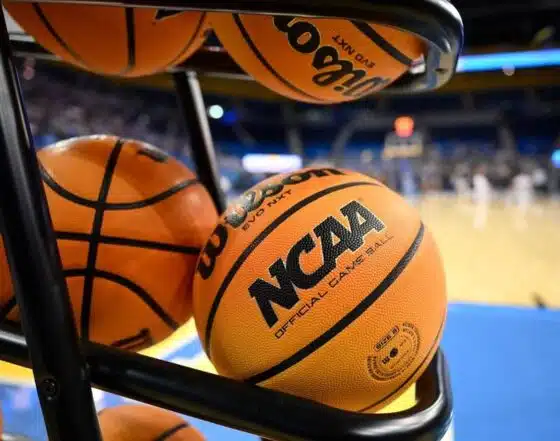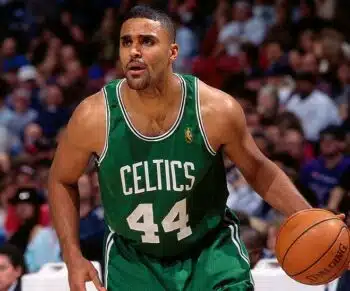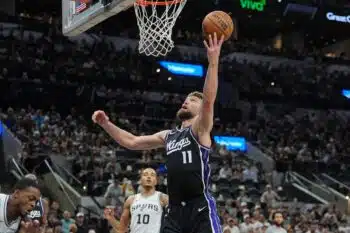College Basketball
College Sports Commission Approves Nearly $80M Worth of NIL Contracts

The new College Sports Commission (CSC) has cleared more than 8,300 name, image, and likeness (NIL) deals worth nearly $80 million, it announced Thursday in its first full update.
College Sports Commission Tasked With Approving NIL Deals
The CSC is responsible for approving contracts worth $600 or more between college athletes and third-party companies. Schools are allowed to spend up to $20.5 million per year to athletes.
From June 11 through Aug. 31, the commission said 28,342 students as well as 3,160 representatives and agents signed up on its NIL Go digital platform.
The CSC launched the NIL Go portal on June 11 following the House v. NCAA settlement. It allows schools to directly pay athletes for their NIL while simultaneously offering them an opportunity to make money from outside groups. NIL Go is in charge of analyzing the outside deals.
Today, the CSC released its first NIL Deal Flow Report, highlighting activity from June 11 – August 31, 2025.
Highlights:
– 28,342 student-athletes & 1,227 institutional users are registered in NIL Go
– 8,359 deals have been cleared, with values ranging up to $1.6M+ pic.twitter.com/1QRPDxxfkg— College Sports Commission (@theCSCommission) September 4, 2025
Despite the large amount of NIL approvals during the two-month span, it said 332 deals had not been cleared to date, 75 had been resubmitted, and none had entered arbitration.
The commission said the most common clearance issues were delays in providing required information, deals not satisfying a valid business purpose requirement, and contradictory deal terms.
According to The Associated Press, the CSC also said values of the deals ranged as high as $1.8 million. It said its “deal flow reports” will be updated on a regular basis.
NCAA, Venmo Partner To Protect Student-Athletes
Last month, the NCAA and online payment service Venmo announced a partnership to combat abuse and harassment of college athletes, per ESPN’s David Purdum.
The NCAA-Venmo partnership features a dedicated hotline for collegiate athletes to report abuse and harassment, education on account security, and increased monitoring.
According to an NCAA official, most of the harassment on Venmo comes in the form of requests for payment from gamblers who lost a bet related to the athlete.
Venmo’s security team will now monitor social media trends and events during games, such as “last-second missed field goals,” that have led to surges in hostile interactions, per Purdum.
In addition, Venmo said it would provide a best-practices guide for athletes to “stay safe” on its platform.
“Venmo will monitor student-athletes’ accounts on an ongoing basis to help mitigate an influx of requests based on game performance and work directly with them to implement additional security measures as needed,” the news release said.
The NCAA’s research revealed that close to 20% of online abuse and harassment directed at college basketball and football players on social media is connected to sports betting.











